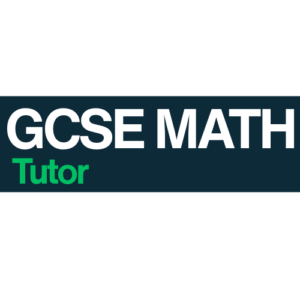GCSE Maths revision can be overwhelming without a clear and effective strategy. To secure top grades and strengthen understanding, students must employ targeted revision techniques that reinforce knowledge and simulate exam conditions. This guide focuses on three high-impact methods: using past papers, practicing with textbooks, and taking timed mock exams. Together, these strategies develop exam confidence, reinforce key concepts, and build time management skills.
🔹 Why Past Papers Are Essential for GCSE Maths
Past papers are one of the most powerful revision tools. They expose you to the exact format, wording, and structure of real GCSE questions and help identify areas where more practice is needed.
✅ Benefits of Past Paper Practice:
- Familiarises you with the exam style and common question types
- Highlights topic strengths and weaknesses
- Allows tracking of progress over time
- Builds confidence in applying methods under exam conditions
Tip: Use papers from AQA, Edexcel, and OCR to explore varied question phrasing across exam boards.
🧠 Strategy:
- Attempt full past papers under timed conditions.
- Mark using official mark schemes.
- Review incorrect answers and revisit weak areas.
🔸 Textbook Practice for Building Core Knowledge
Textbooks are ideal for reinforcing foundational skills and topic-specific understanding. While past papers test application, textbooks provide structured explanations, worked examples, and targeted questions to build confidence step-by-step.
✅ Benefits of Textbook Practice:
- Offers graded difficulty levels for different learners
- Includes explanations to clarify misunderstood topics
- Strengthens core skills before attempting exam-style questions
📘 How to Use Effectively:
- Focus on one topic at a time (e.g. algebra, trigonometry)
- Work through exercises in ascending difficulty
- Review worked examples before attempting problem sets
Tip: Supplement with revision guides like CGP, Collins, or Pearson Edexcel books.
🔸 Timed Mock Exams – Simulating the Real Thing
Taking timed mock exams replicates the pressure of the real exam environment. It helps develop time management skills, reduce anxiety, and provide a realistic sense of readiness.
✅ Why Timed Practice Works:
- Builds stamina for completing full papers
- Trains the brain to work efficiently under pressure
- Highlights pacing issues (e.g. spending too long on one question)
⏱️ Suggested Plan:
- Set up a quiet environment without distractions
- Use a timer and follow real exam durations (90 mins, 2 hrs, etc.)
- Complete both calculator and non-calculator papers
- Review your performance and reflect on improvements
Tip: Record scores over time to measure progress and adjust your revision plan accordingly.
🔹 Combine Strategies for Maximum Impact
Each method—past papers, textbooks, and mock exams—serves a specific purpose. By combining them in a revision plan, students benefit from deep learning and performance testing.
🔄 Sample Weekly Plan:
- Monday: Topic practice from textbook (e.g., algebra)
- Tuesday: Past paper Section A under timed conditions
- Wednesday: Review answers and revisit weak areas
- Thursday: Topic revision with worked examples
- Friday: Full mock paper under exam conditions
Tip: Include breaks, revision apps, flashcards, and peer discussion to maintain engagement.
✅ Final Thoughts
Effective GCSE Maths revision is about quality, not just quantity. Focusing on past paper familiarity, structured textbook reinforcement, and realistic mock exam simulations ensures students are thoroughly prepared for exam day. These proven methods develop not only subject knowledge but also confidence, exam resilience, and long-term retention.
To access free practice materials, expert advice, and one-to-one tutoring support, visit GCSE Maths Tutor.

